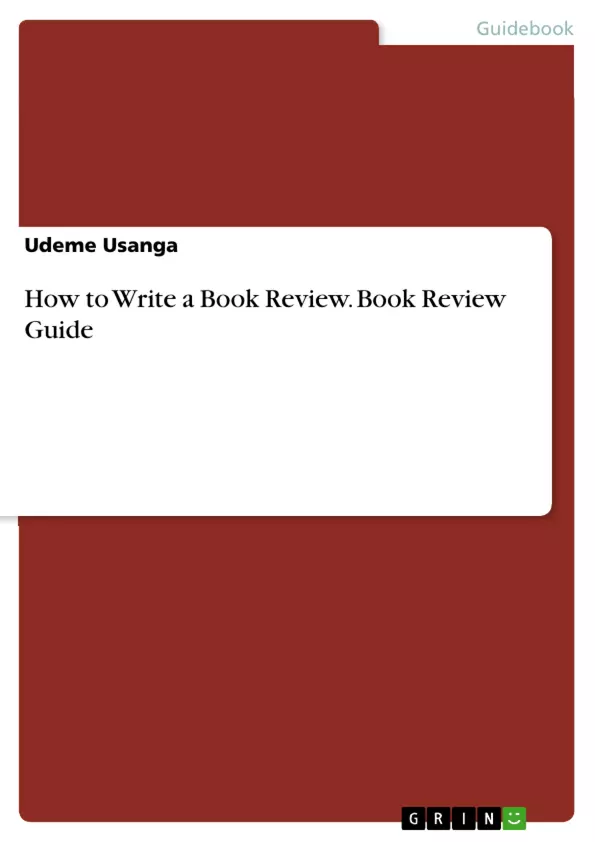The main purposes of research include understanding, integrating, and modeling nature and society. Books and research works are important to achieve such goals, since it reviews fundamental subjects in different fields of human endeavour, while incorporating more recent developments. Materials published from academic research findings and other literary works need to be published for use for increase knowledge in the subject area by participants in the development process. However, since no one person is a repository or island of knowledge, such works need to be assessed, evaluated and appraised to meet the needs of the target audience.
This study which evaluated the state of book review at the Federal College of Agriculture's Library, Ishiagu revealed that Nigerian authors do not write and publish their work like their foreign counterparts. Out of the total number of 4,500 books in the library, 77.78% are reviewed, while 22.22% are not reviewed. 82.22% of books in the library are written and published by foreigners while Nigerians and other African authors contributed to the remaining 17.78%; meaning that Nigerian authors and researchers are not doing enough in their literary and research work as it applies to the Nigerian situation.
"How to write a Book Review and Book Review Guide" is to enable academic research professionals contribute to research, publishing of their work and knowledge. This paper identifies the necessary key components in academic publications, presents a description of book review methodology and attempts to integrate specific outcomes into a standing core of academic exercise and culture, 'publish or perish'!.
Table of Contents
- Abstract
- Introduction
- Objective
- Scope
- Methods
- Results
- Discussion
- Stakeholders and Purpose of the Book Review
- Book Review Publication Process
- Appraising the Book
Objectives and Key Themes
This paper aims to describe and discuss the processes used to write scholarly book reviews for publication in peer-reviewed journals. It also provides a recommended strategy and book appraisal worksheet to use when conducting book reviews.
- The importance of scholarly book reviews in informing readers, guiding reading preferences, and providing a platform for critical evaluation.
- The diverse roles of stakeholders in the book review process, including readers, authors, journal editors, publishers, and librarians.
- A detailed examination of the book review publication process, from selection and commissioning to submission and publication.
- A comprehensive guide to appraising the book, including research on the author's qualifications, an overview of the book's organization, and the use of different methods for reviewing different types of works.
Chapter Summaries
- Abstract: This section outlines the study's purpose, which is to evaluate the state of book review practices at the Federal College of Agriculture's Library, Ishiagu, and to address the shortage of books written by Nigerian authors. It highlights the need for academic research professionals to contribute to sustainability research.
- Introduction: The introduction discusses the significance of scholarly book reviews in informing readers, guiding their reading preferences, and providing a platform for critical evaluation. It emphasizes the challenges faced by book reviewers in crafting balanced and informative critiques within word limits.
- Objective: The objective of this paper is clearly stated as describing and discussing the processes used to write scholarly book reviews for publication in peer-reviewed journals and to provide a recommended strategy and book appraisal worksheet.
- Scope: The scope of the article is defined for academic teachers and researchers, graduate students, and other individuals interested in conducting research or developing theoretical knowledge bases or technology that helps solve societal problems.
- Methods: The methods section outlines the literature search conducted at the Federal College of Agriculture's Library and Documentation, focusing on the number of books written by Nigerian and foreign authors, and those that have been reviewed. The selection criteria for articles included in the review are described.
- Results: The results reveal that a significant percentage of textbooks in the College library are written and published by foreign authors, highlighting a lack of local content. The study emphasizes the need for Nigerian authors and researchers to contribute more to their field.
- Discussion: This section focuses on the various stakeholders involved in the book review process and their respective perspectives. It delves into the role of book reviews in informing readers, guiding reading preferences, and providing feedback to authors and publishers. It also examines the book review publication process, from selection and commissioning to submission and publication, and highlights the importance of a planned appraisal strategy for conducting effective book reviews.
Keywords
This paper focuses on scholarly book reviews, academic writing, book appraisal, research methods, sustainability research, and the contributions of Nigerian authors and researchers.
Frequently Asked Questions
What is the main objective of this book review guide?
The guide aims to describe the process of writing scholarly book reviews for peer-reviewed journals and provides strategies for book appraisal.
Who are the main stakeholders in the book review process?
Stakeholders include readers, authors, journal editors, publishers, and librarians, each with different interests in the evaluation.
What did the study reveal about Nigerian authors?
The study found that a majority of books in the investigated library (82.22%) are by foreign authors, suggesting a need for more local literary contributions.
What are the key components of an academic book review?
Key components include an overview of the book's organization, research on the author's qualifications, and a critical assessment of the content.
What does the term "publish or perish" refer to?
It refers to the pressure in academia to constantly publish research findings to maintain a career or institutional standing.
- Arbeit zitieren
- Udeme Usanga (Autor:in), 2012, How to Write a Book Review. Book Review Guide, München, GRIN Verlag, https://www.grin.com/document/1387632



